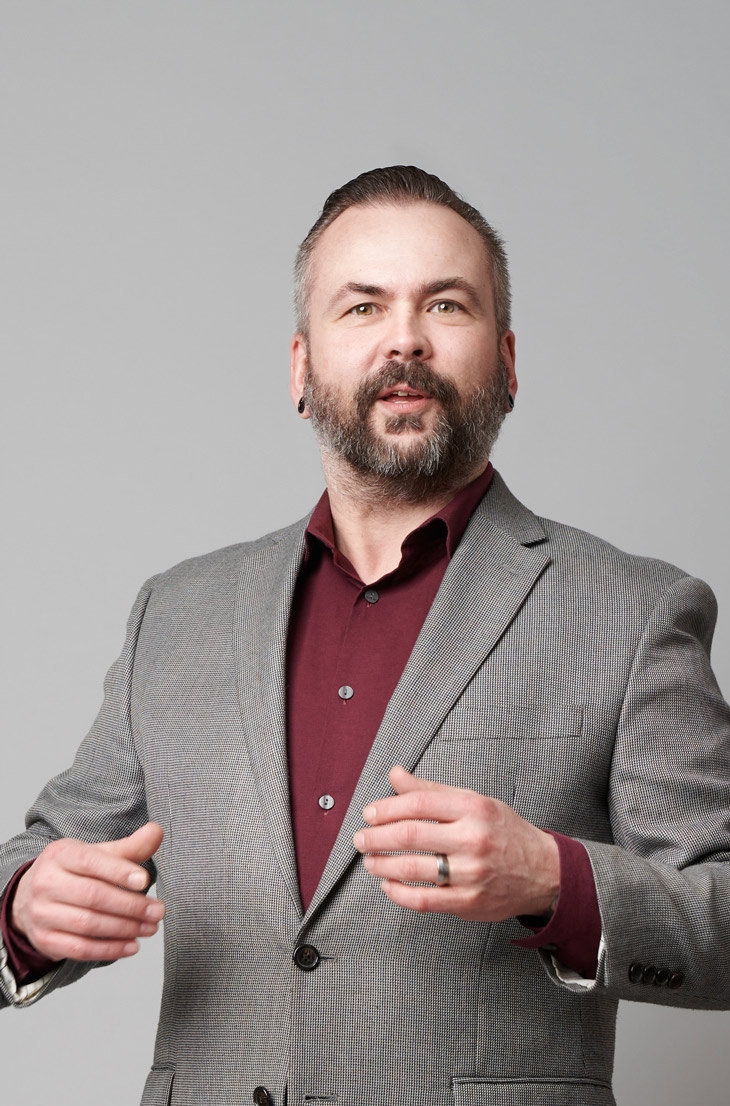Over the last 20 years, I’ve seen great work come from designers at all different levels. Which is exactly why I enjoy participating in portfolio reviews—where graduating design students discuss their work, receive constructive feedback, and get career advice from alumni and industry leaders.
Last year, I was asked to join the Rider University portfolio review. It was an amazing experience, during which I met three graduates who each took dramatically different approaches to their student work. They shared some of their favorite pieces and talked about their ambitions for the future. And then I shared some insights and advice about breaking into the industry and building a successful career.
This year, in addition to being asked to join Rider’s 2022 review, I was also invited by our former JK intern, Sana, to join her review at Tyler School of Art and Architecture. I was honored to be included in Sana’s big day—and wildly impressed to see how far her work had come over the last year. I also had the chance to meet two other graduating students who I enjoyed talking to so much that I connected with them later on about freelance opportunities at JK.
Every school has their own way of structuring reviews—some use a roundtable format, others stick to one-on-one conversations. But no matter what the review looks like, the critique is always an important part of the process. We’re asked to give the students constructive feedback to prepare them for real work experiences. It can be a very stressful moment for the creatives who are presenting, so I try to make it as comfortable, insightful, and informative as possible.
When giving feedback, I focus on these three areas:
- Confidence
When it comes to selling through an idea, confidence is key. The way you present your work is crucial in helping the client fall in love with an idea or creative execution. You need to take them on a journey and make them feel confident that your idea, your design, your copy is the best solution for their needs. When it comes to a portfolio review, the presentation is important for setting up the work we are going to see. If they are uncertain about the work, it gives us a clear area of focus for them as they move into the working world. If they are confident in their work and present with enthusiasm it sets us up for a presentation that is very likely to impress and excite us. - Process
One of my favorite parts to discuss is the thought process that took them from point A to point B. I love hearing about the insight that drove their ideation process and their various attempts to make the creative match the vision in their head. I’m most excited during a presentation when I can follow along with that process all the way to the big final reveal because it makes it that much more rewarding. To see a student especially put that kind of thought and effort into their work shows me that they are ready to take on bigger responsibilities and will be better prepared to enter into a promising career. - Execution
Finally, I want to see the finished work. I’ve ranked this third on the list of focus areas because while it’s an important part of the presentation, I also know there are so many things that can affect the outcome of a project—and that the final product might not fully represent the idea or insight that the project was based on. To me the journey to get there is what really tells the story. But what creative execution does often tell us is whether or not someone would fit into a creative role—or if there is a better path forward for that student.For example, one student had amazing insights but didn’t have a firm grasp of the tools or strong foundational design skills. She loved data and had a unique ability to drive to the heart of a problem and unpack a solution. So I asked her if she had ever considered a career in strategy or UX. She had never even given it a thought, but it was amazing to see the relief on her face when she realized she had other opportunities that would better fit her skillset.
Overall, what I love about these events is the opportunity to meet new talent, learn what in the industry excites them, and understand what drives them. It’s inspiring to see their work, hear their fresh ideas and perspectives, and share in their enthusiasm for what’s next. And I never cease to be amazed at the quality of work and raw talent.
At the same time, it allows me to give back all of the advice and mentorship that was offered to me over the years. As someone who never went to college, it was the people who took me under their wing that made me the creative leader I am today. I will be forever grateful for the time, energy and patience they gave to me over the years—and I’m grateful to have the opportunity to do the same for future creatives.
In fact, my dream is to someday reconnect with those students in the future as they become creative leaders themselves. Who knows…maybe they’ll even be my boss some day.
